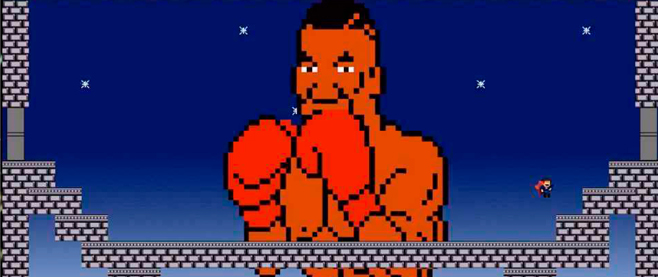
Bibbdi Babbdi Boo
I didn’t set out to cover so many 3-D, lo-fi games when I pitched this column. That’s just the way it’s worked out. I imagine it reflects the sort of thing I’m drawn to: evocations of places and processes through detail and minutiae.
I’m constantly struck by how little a game needs in order to suggest those things, how crude its materials can appear without compromising clarity of vision. Our minds fill in the blanks, using those blocky, fuzzy cues as a base. We project onto them. An intimacy emerges out of that process, which is as involved and as collaborative as anything involving the game mechanics proper. Think of when people read books and then get so very precious about the eventual adaptation – when their minds have worked in concert with the words on the page, there’s little else that can compare to that self-shaped image. The same intimacy isn’t there.
A game that asks you to imagine a space, then, builds a relationship between you and that space. It sketches, priming you to picture the rest and mentally ink over the pencil lines. The following games go beyond that, establishing that relationship before subtly changing it if not upending it entirely.
BABBDI
free (Itch, Steam) | Lemaitre Bros.
Babbdi drops you into a brutalist concrete sprawl, not empty (the elevators still work), yet sparsely populated by pale, bulbous cartoon folk in the shadows. One guy sits on the top floor of a condemned restaurant, lamenting the state of it; one girl pines after motorcyclists in the shadow of a church in the shadow of hulking high-rise tenements. They are distinct enough for their specific and scenic functions, but also quite easy to miss – though you always start in a bare apartment hallway with the goal of trekking to a distant office selling train tickets, there’s no “right” way to get there, no necessary pit stops. The world is littered with items we may or may not use on paths that we may or may not ignore entirely.
A few inventory pickups notwithstanding, you can hold only one item at a time, and some of those items have particularly narrow uses like a flashlight or a trumpet. To pick one up, you drop whatever was on hand already, which will likely be an object allowing you to move in great leaps and bounds – the earliest item is a club that bounces you off floors and walls like a 3-D first-person version of the cane from Ducktales.
There’s no fall damage, though I found myself more than once falling far enough to wish that there was. There’s no death, either, as though nothing is worse than having to remain in that gray microcosm.
But as I found other items that allowed faster and higher traversal— a leaf blower, a motorcycle – I was surprised how easily the world fit together in my head. Falling becomes not a big deal, an absence of caution as I learn to be bolder, like the child who has hopped that gap a hundred times and so has accumulated a hundred instances of proof that they’ll make it across.
Babbdi spins its initial sense of foreign ruin into intimate wonder. It feels wrong at first, as if in conflict with what should be the overriding desire to take the train far, far away. By the end, though, I found myself sharing the same faint nostalgic feeling with the unnamed, unseen protagonist staring out the train window: the certainty that I’d miss that place once I leave.

HARAM
free (Itch) | Stef Pinto
Inspired by and often directly featuring the transgressive art of Andres Serrano, Haram is a filthy and oppressive rumination on rot and decay. Most directly, the game’s ideas come from a rambling, whose bottom-of-screen text box provides running nihilistic commentary while you trudge through ghastly environments with hellish iconography. With such a sickly color scheme, the game looks and feels as though you put on old-timey diving gear to go walk around in the Piss Christ. (Maybe give this one a miss if you don’t want to look at dead animal carcasses or birthed lambs or meat assemblages in the image of Christian relics.)
Most of Haram is straightforward, the closest of this bunch to a “conventional” walking sim where you take in the sights while reading what the pig says. A few sections, however, break from that rhythm and are all the more disturbing for it. One has you break into three pig-homes to spread a perverse and violent gospel, ejecting spent shotgun shells once finished. One has you look to the sky to follow encircling buzzards or down to follow trails of bones, turning newfound freedom of motion into a source of dread, because under the suffocating, monologuing menagerie of grotesqueries at least you knew exactly where you were going. Sometimes it even looks beautiful momentarily, the sheep-strewn meadow beneath the church that floats inverted beneath a cloudy veil.

BEAUTYCOPTER
name your own price (Itch); paid (Steam) | Graceless Games
If Haram is at one end of the spectrum, then Beautycopter is closer to the other end, with its strangeness taking on the curiously idyllic quality that Babbdi slowly acquires over time. In the chilled-out tranquility of a bizarre spa where everything resembles a cut-out collage, your job is as a sort of all-purpose customer liaison. Escorting guests and refilling the talking pigeon’s food ring and running a dirty towel through the wash for the humongous giraffe, the game offers one of the most relaxed ever visions of working in customer service. Why? Well, in addition to the lack of time limits or fail states, it’s because accomplishing these tasks involves piloting your tiny single-seater beautycopter, which is a little like those golf carts used by resort staff to get around except much cooler.
You aren’t required to help everyone, but assisting guests is how you advance time and eventually get through your shift, details subtly shifting along with the clock. Your cheery protagonist, who addresses everyone in the same relaxed text-to-speech cadence, seems accustomed to going above and beyond, with one quest requiring you to fly to a store outside the property in order to get microwavable food from a convenience store for a cat in a little coat. Somehow customer service here is fun and harmonious without seeming like an insidious training module, despite how much the art style and the sound design seem to dance around the edges of that sensibility.
There’s a soothing, innocent wonder to its atmosphere that sometimes takes on a melancholic quality, like when you cross a fog barrier so that a town with one lone smokestack comes into view. The world you came from: small, quiet, a place to be escaped. By all rights, it should be tedious, but the eccentric details give life to what might have felt so very routine. Certainly it helps that controlling the copter feels good, particularly as you gradually climb to greater heights in search of more guests and maybe also divinity. I can’t quite tell if it’s an intentional joke or not that most of the things that concern you are on ground level, reachable without going airborne. There’s not much of a reason to fly except that it feels good, but perhaps that’s the point: that it feels good is reason enough.
———
Steven Nguyen Scaife is a freelance writer and editor who will not pick a pop culture lane. He and his cat are marooned in Ohio still.





